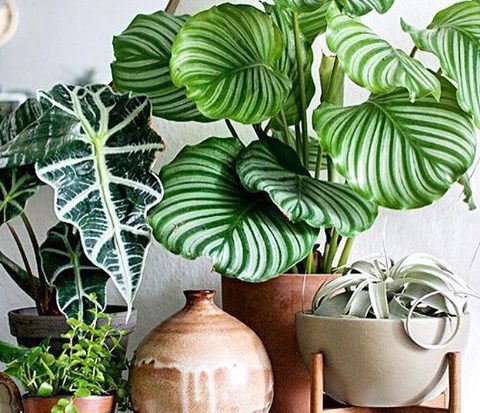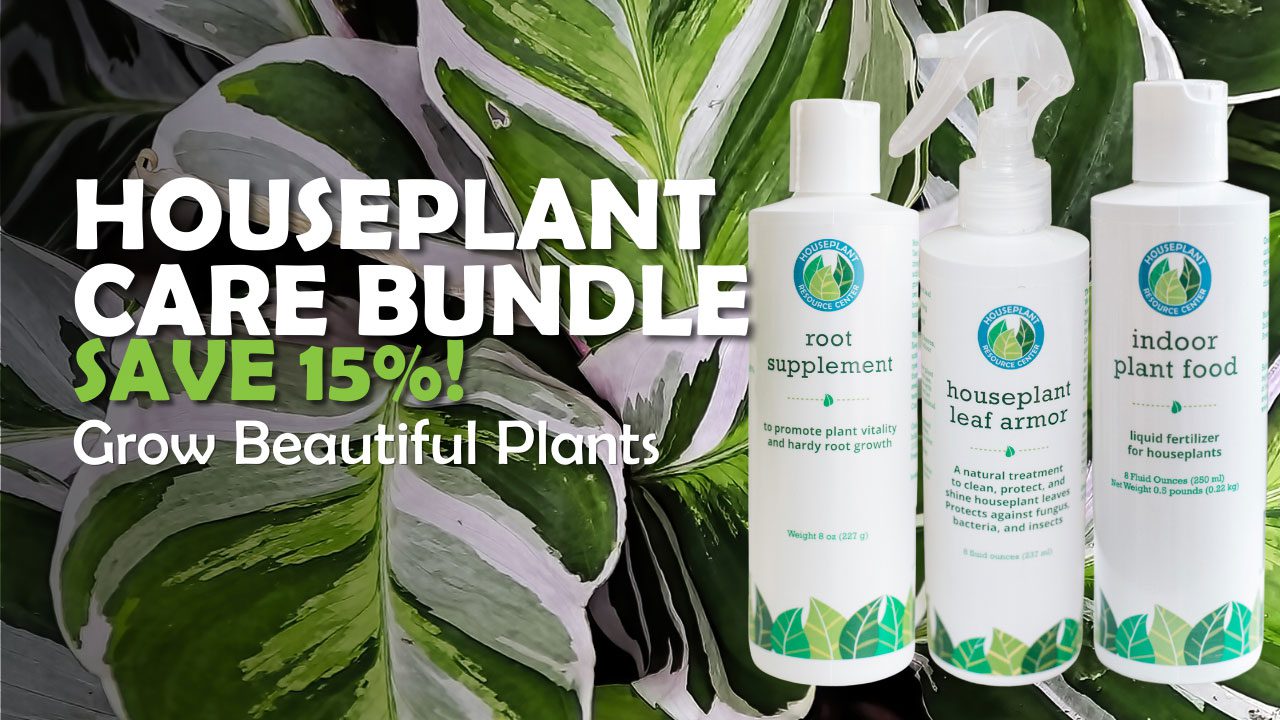Top 10 Secrets for Houseplants
Think of these top 10 secrets as The Ultimate Guide to Growing Houseplants for Beginners.
Every new plant owner wants their plant to grow healthy and strong. But the sheer abundance of resources online can be overwhelming. Fortunately, there are a few simple rules to live by to ensure a happy, healthy houseplant—no beginner’s luck needed. Without further ado, let’s dive into discussing our top 10 secrets for becoming a houseplant whisperer!
1. Excellent Drainage
Most people know roots absorb water. Did you know they also absorb air? That’s why your plant needs a container with proper drainage. This keeps the soil aerated and prevents standing water—which deprives roots of oxygen.
Houseplants for Beginners: Planting in Decorative Pots
Have a gorgeous pot without a drainage hole? Put your plant in a slightly smaller interior pot and place it inside the decorative container. Voilà! Happy plant, beautiful home.
2. The Right Soil
Soil gives plants nutrients, stability, and room to grow. Some plants (like ferns, spider plants, and orchids) will prefer a very moist soil. Others (like cactuses and succulents) prefer minimal moisture. You’ll need to research what your specific plant likes best.
Houseplants for Beginners: Fast-Drying Soil
There’s no one-size-fits-all solution, but many houseplants grow well in fast-drying soil. This is because the soil dries up between waterings, giving the plant space to breathe. You can purchase fast-drying potting soil online, or mix standard indoor potting mix with half bark or cactus mix.
3. Don’t Over-water
Even the best container and soil can’t prevent you from over-watering. When learning how to care for houseplants, many novices give a little too much love in this department.
Houseplants for Beginners: Proper Watering
First, you’ll want to determine how frequently your plant species needs to be watered. Begin by following the general recommendation and adjust as needed.
A few other factors will impact how often you should water your plant:
- The size of your plant
- The size of its container
- How well the soil drains
Soil meter: Because soil can be dry on top and still quite moist at the root ball, a soil meter helps you determine the moisture level where the plant is actually receiving it.
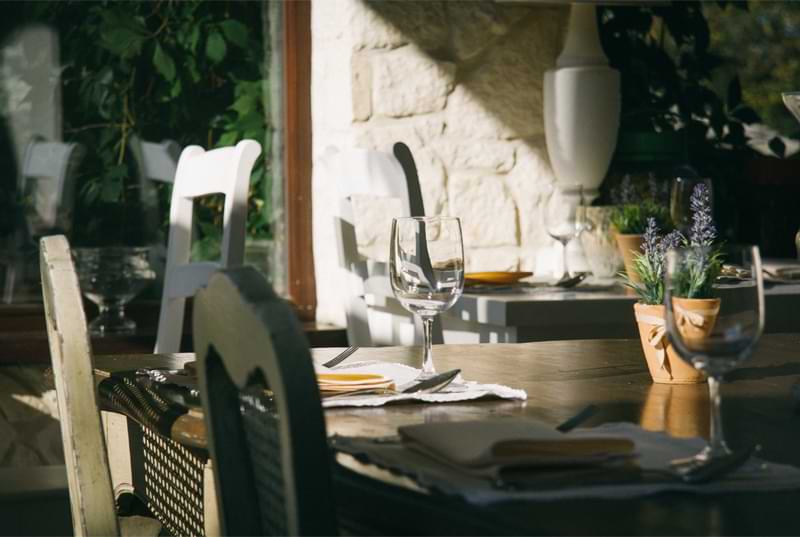
4. The Right Light
Your plant draws energy from the sun to power its growth. You will want to determine whether your plant species has a high or a low tolerance to light and place it in your home accordingly.
Signs your plant is not getting enough light
- Stunted leaf growth/new leaves are small
- No growth or slow growth
- Your plant does not bloom or flower
- Thin and gangly growth
- Yellowing or dying leaves
Signs your plant is getting too much light
- Your plant is wilted under high light
- Your plant looks brown, scorched, or “sunburned”
- Leaves become brittle and die
- Plant colors are muted
Acclimating High-Tolerant Plants
If you bought your plant from a nursery, chances are it’s used to getting about 50% full sun. Place new plants in sunnier spots so they can acclimate; after about a month you can move them to a place with less sunlight.
5. Treat Problems Immediately
A stressed houseplant can go downhill in a hurry. Root rot is a common houseplant ailment. It acts fast; within a week you can lose all of the beautiful leaves your plant (and you!) worked hard to grow. This can be a disheartening lesson for novice growers.
Houseplants for Beginners: How to Treat Root Rot
- Repot your plant into a fast-drying soil.
- Apply a root rot treatment to prevent further damage.
- Treat your plant every two weeks until everything looks good.
- Treat it monthly to prevent root rot in the future.
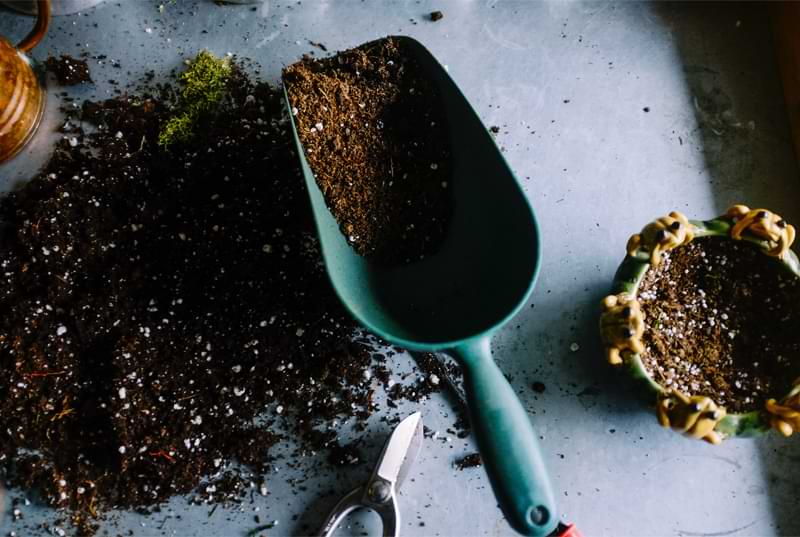
6. Repot When Necessary
If you want your plant to thrive, the right pot is a non-negotiable. Unfortunately, sometimes your plant just isn’t happy where it’s planted. Look for these clues that it might be time to repot:
- You’re noticing problems: Maybe leaves are dropping or the container isn’t draining as it should, or you’re getting brown spots or mold on the soil.
- It’s not growing: When a plant’s container is too small, its roots will bind. This means it will grow slowly—or not at all—because it has run out of space.
How do I keep my houseplant small?
Perhaps you have limited space, or simply want your plant to stay the same size. You can restrict new growth by keeping it in a smaller pot. Make sure you refresh the top 3 to 4 inches of soil periodically so it gets nutrients and stays healthy.
7. Feed Them Properly
Plants absorb nutrients from the soil in which they’re planted. In nature, dead and dying foliage replenish those nutrients as plants deplete them. Since this doesn’t happen in your living room, you’ll need to fertilize your plant.
Using Gentle Liquid Fertilizer
Although there are several methods, we recommend adding a gentle liquid fertilizer to your watering can before each use. Here’s why:
- A steady stream of nutrients: Excessive fertilizer can cause root burn; lightly feeding your plant every time you water prevents this. It also keeps your plant from starving in between feedings.
- Forget about a feeding schedule: You’re busy; fertilizing every time you water gives you one less thing to keep track of on your schedule.
Buy gentle liquid fertilizer online.
8. Regularly Rotate Your Plant
When learning how to care for houseplants, you may end up with a lopsided plant that can barely stand upright. Why? When light hits a plant indirectly, it starts to grow in that direction over time.
Houseplants for Beginners: Encouraging Even Growth
The best way to prevent your plant from growing lopsided is to rotate it one quarter every time you water. This helps promote even growth on every side.
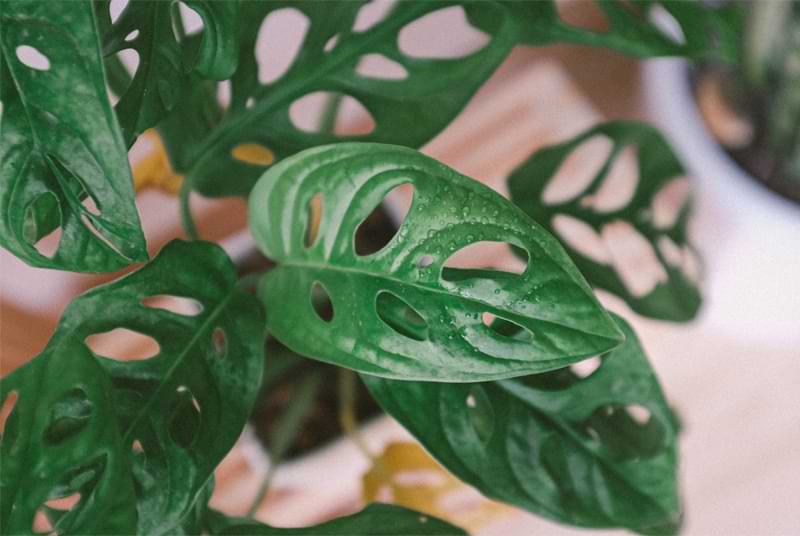
9. Clean the Leaves
This tip may seem mundane, but clean leaves cannot be overlooked. Dust-free leaves are important for your plant’s health. Why?
- It’s how plants breathe: Your plant takes in oxygen through stomata, pores in its leaves. Dust and film block these pores and limit air intake.
- Leaves absorb light: Dust and film deplete the amount of light your plant can absorb. This limits photosynthesis, a process essential for growth.
Houseplants for Beginners: Leaf Cleaning
You don’t have to get too fancy; a damp cloth will do just fine. You can also rinse your leaves in the shower or with a hose. Some growers prefer leaf shine and protect spray. Like lotion, leaf sprays help plants retain moisture and leave a glossy finish.
Buy leaf shine and protect spray online.
10. Plant Friend Friday
Set a specific day of the week to give your plant a little love and care. Establishing a weekly check-up helps you catch minor ailments before they become major headaches.
Houseplants for Beginners: Weekly Check-Up
- Pest damage: Examine your plant for bugs, holes, and spider mites—anything that indicates your plant may be hosting unwanted guests.
- Cosmetic issues: Look for dry leaves and brown spots. Remove dry leaves and consider applying a root rot treatment.
- Soil status: Make sure the soil is draining; stick a soil meter in to check moisture levels.
- Give it some love: It’s true. Plants respond to positive intentions. A simple “Hello, friend, I love you” will go a long way. While you’re at it, give your plant a name!
Following these simple top 10 secrets for houseplant care will help you grow beautiful plants and greater confidence. Have another question about how to care for houseplants? Visit Houseplant Resource Center and explore our full library of houseplants for beginners resources!
To learn more:
- Join us for our free Houseplants for Beginners Webinar
- Read The Last Houseplant Book You Will Ever Need, it’s our mission to supply plant lovers with the very best products for their plants. The book is available in full-color paperback or Kindle edition on Amazon now!
- Click to join our community on Facebook: Houseplant Resource Group.


